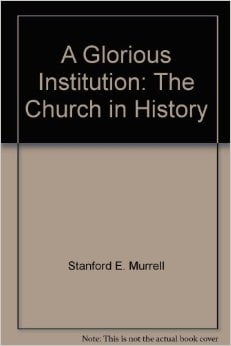
Glorious Institution_ The Church part 1-2
Church History by
Stanford E. Murrell
The Pilgrim Church presents an alternative “ecclesiastical history” of all movements within historical Christianity to return to the Bible and practice NT Christianity. Broadbent and Bruce were members of The Brethren, as well as Bruce, who highly regarded this book.

Glorious Institution_ The Church part 3-4
Church History by
Stanford E. Murrell
Glorious Institution The Church Parts 3-4, by Stanford E. Murrell, continues the story of the rise of the Church of Jesus Christ of Latter-day Saints. In Part 3, Murrell examines the Church’s expansion and growth through missionary work and the introduction of new temples. Murrell also discusses how the Church has grown to become a global institution, with members in countries worldwide. In Part 4, Murrell explores how the Church has adapted and evolved, including introducing priesthood and expanding its social and political influence. In Parts 3 and 4, Murrell examines how the Church has become a powerful force in our world and how it has impacted its members’ lives. With its focus on the Church’s history and development, Glorious Institution The Church Parts 3-4 is essential for anyone interested in learning more about the Church of Jesus Christ of Latter-day Saints.
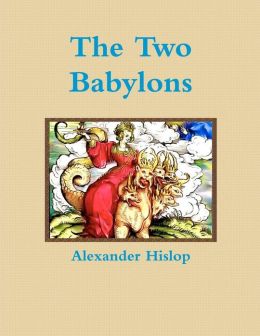
Two Babylons
Pagan Origins of Religion by
Alexander Hislop
Two Babylons is born from a passion connecting ancient Babylonian religion to arguments from Egyptian, Grecian and Roman mythologies. The original book is from 1853; it centers on the apocalyptic symbolism of Babylon’s image in the Book of Revelations and arguments about the non-scriptural precedents of some of the fundamental practices of the Roman Church. Alexander Hislop also analyzes the pagan roots of religious holidays and accepted doctrines such as Easter and crucifixion, respectively. Drawing from various religious and historical resources, Alexander provides detailed comparisons between festivals today and those of the ancient Babylonian religion. Although Alexander Hislop wrote a long time before anyone decoded this ancient Babylonian religion, certain Christian evangelical protestant groups highly regard this work. Much of this book depends upon the links between influential mysteries, historical figures and folk etymology. Continuously going through critical analysis, the book is considered a continuation of the ancient Babylonian religion.

Fossilized Customs
Pagan Origins of Religion by
Lew White
Lew White’s books encourage his readers to understand the underlying purpose of the Ten Commandments, making them easy to understand rather than coming across as an impossible set of commands to follow. Lew White treads the waters of ancient traditions and religions, unveiling original symbols, practices and meanings to expose the truth about worship. An eye-opener, the book is written to create new drive and motivation so that his readers can find purpose and commit to obeying. Lew White has presented his thorough research and brings forth strong points that unearth the true religious anthropologies. Although it is not a quick read and a lot to take in, Fossilized Customs is worth its time. This book is a research tool that helps us understand the inherited customs and how their interpretations have trickled down to generations. Lew White’s thirty-two years of research is the missing piece that completes the puzzle.
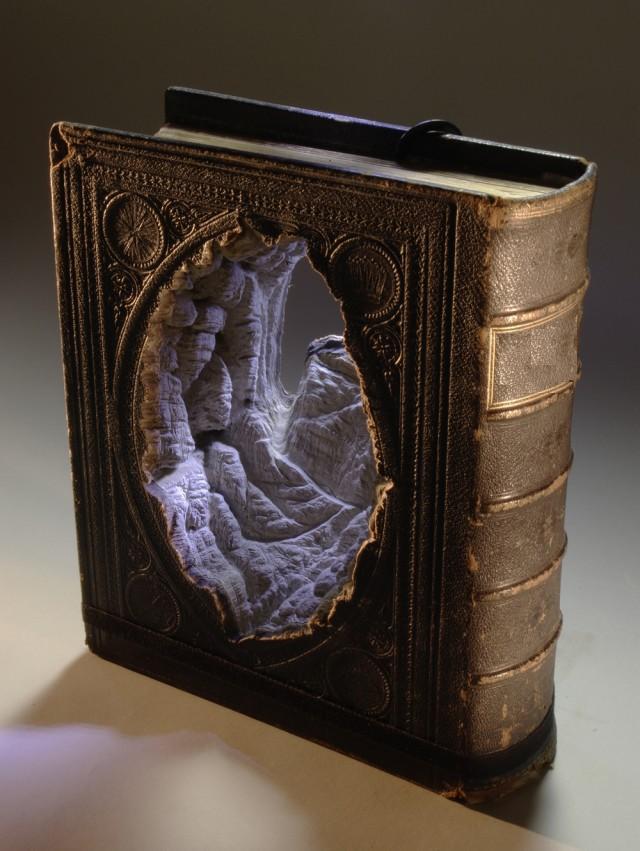
Introducing the World of the New Testament
Canonization, Sources and Major Players by
Various
This book serves as an introduction to the history, theology and literature of early Christianity, written to inspire and support students. A responsible text for twenty-first-century believers, it captures the excitement of early Christians and transmits them to the faithful today. The book acts as a passageway from biblical times to modern times, placing the New Testament in today’s context. A highly readable and accessible guide written by a distinguished scholar, this book is for students seeking answers to Christianity. Large or small, the author discusses a range of related subjects, from the purpose of the New Testament, its understanding in modern times, the meaning of resurrection, Paul’s controversial letters, the Gospels to practical ways enabling believers today to live lives as in the era of Jesus and the apostles. The book curates decades of research and writings in one volume to open the reader’s eye to the bigger picture.”
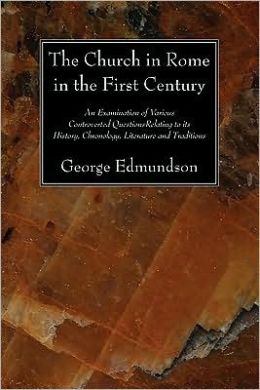
Church in Rome First Century
Early Jewish Church by
George Edmundson
The First Century of Christianity in Rome, by George Edmundson, provides an in-depth look at the early days of Christianity in the Roman Empire. Edmundson goes beyond the traditional accounts of the period, delving into the beliefs, customs, organizations, and architecture of the early church. In addition, he provides new insight into the development of the Papacy and the relationship between the Roman Church and the Eastern Church. He also examines the various personalities and groups that shaped the church’s history, from the martyrs to the Roman emperors. A comprehensive look at the history of the Church in Rome is a must-read for anyone interested in Christianity’s early days.
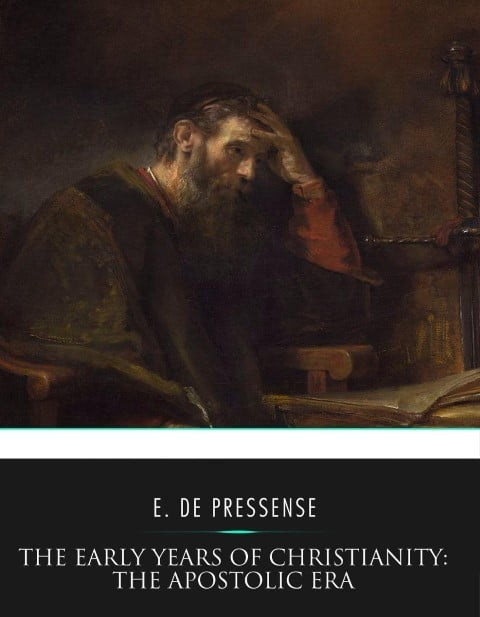
Early Years of Christianity
History by
E. de Pressensé
Christians, while they were still held in the bonds of Jewish exclusiveness, did not clearly comprehend that they were called to form a religious society differing altogether from the ancient theocracy. They were conscious of a new and special relationship established between those who had been baptized in the name of Christ, but they regarded themselves rather as the true Israel than as the Christian Church. As Christianity extended its conquests among the heathen, their ideas widened, and, as we have seen in the theology of St. Paul, the true conception 332of the Church, the idea of a willing people gathered out of the whole world, of a regenerated race formed anew in Christ Jesus, was one of the most precious results of the mission of the Apostles.
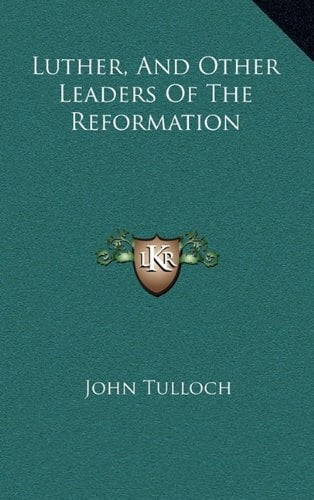
Luther And Other Leaders Of The Reformation
Church History by
John Tulloch
Luther and Other Leaders of the Reformation is a comprehensive survey of the religious, political, and social upheaval of the 16th century. This book examines the dramatic changes in the European religious landscape during the Reformation and explores the ideas and actions of the reformers who sparked the movement. This book provides an overview of the Protestant Reformation, including Martin Luther’s role and the contributions of other key figures such as Ulrich Zwingli and John Calvin. The book also examines the impact of the Reformation on the Catholic Counter-Reformation and the wider world. Luther and Other Leaders of the Reformation is an essential resource for students and scholars of Reformation history.